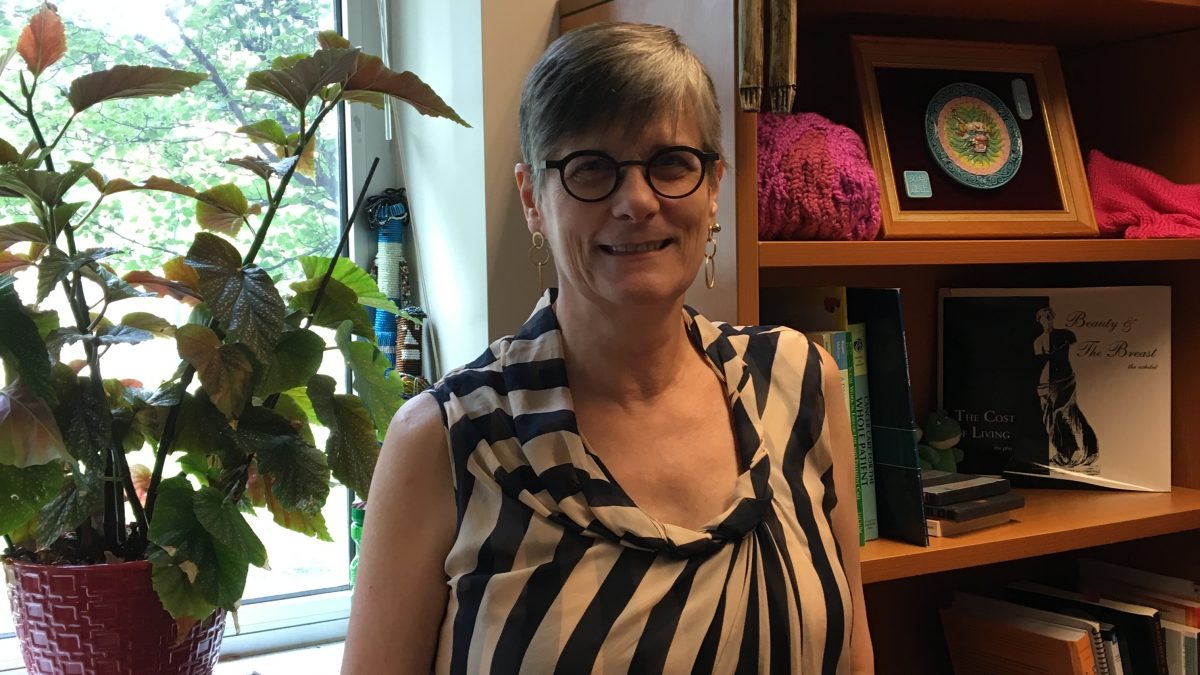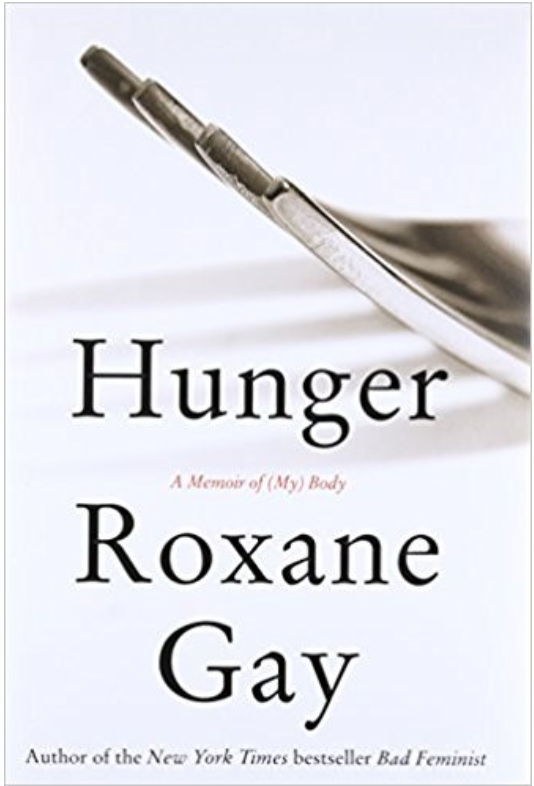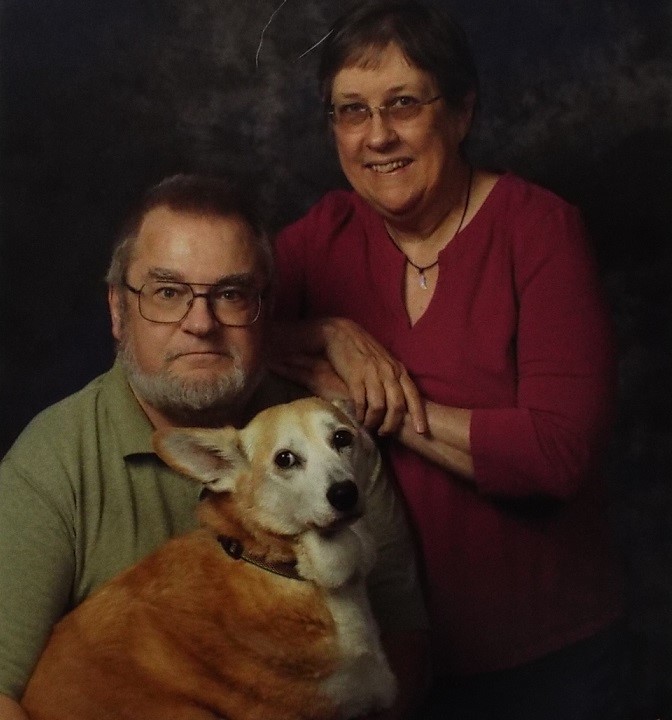
Match the Selfie to the Shelfie
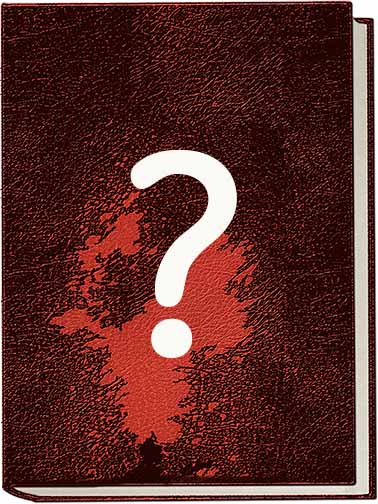
The Clemont College Library staff plus two of the tutors from the Academic Success Center were challenged to choose one favorite book. Not an easy task! But we did it. Now you have a chance to match the person (selfie) with their favorite book (shelfie.) Check out the bulletin board in the hall by the library. Fill out the entry and drop it in the contest box on the library’s information desk. One lucky winner will receive a $25 Subway gift card.
Penny McGinnis
Technical Services Manager
XSEDE HPC Workshop: GPU Programming Using OpenACC
XSEDE HPC Workshop: GPU Programming Using OpenACC
Description: The University of Cincinnati is pleased to be a remote site for the XSEDE HPC Workshop GPU Programming using OpenACC, taught by the Pittsburg Supercomputing Center. OpenACC is the accepted standard using compiler directives to allow quick development of GPU capable codes using standard languages and compilers. It has been used with great success to accelerate real applications within very short development periods. This workshop assumes knowledge of either C or Fortran programming. Due to demand, this workshop is telecast to several satellite sites. Tentative Agenda
When: November 6, 2018: 11am – 5pm
Location: University Hall Room 454
51 Goodman Street
Cincinnati, OH 45221
Note: You need an XSEDE account to register Create Account
Parking: Kingsgate Garage, 151 Goodman Street
Special Instructions: Participants should bring their own laptop, lunch will be provided.
Questions? Contact Amy Latessa latessak@uc.edu
XSEDE (eXtreme Science and Engineering Discovery Environment) is a virtual system that provides compute resources for scientists and researchers from all over the country. Its mission is to facilitate research collaboration among institutions, enhance research productivity, provide remote data transfer, and enable remote instrumentation. XSEDE is funded by National Science Foundation (NSF). Getting Started Guide for XSEDE.
Flyer – DCS2-OpenACC Nov 6, 2018
Join UC Libraries at Books by the Banks Oct. 20
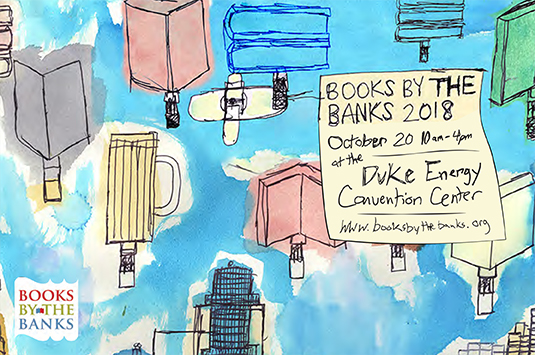 On Saturday, Oct. 20, the 12th annual Books by the Banks: Cincinnati USA Book Festival will take place downtown at Duke Energy Convention Center from 10 a.m.-4 p.m. Once again, UC Libraries is an organizing partner of the literary event that allows readers to meet and greet favorite authors.
On Saturday, Oct. 20, the 12th annual Books by the Banks: Cincinnati USA Book Festival will take place downtown at Duke Energy Convention Center from 10 a.m.-4 p.m. Once again, UC Libraries is an organizing partner of the literary event that allows readers to meet and greet favorite authors.
The day-long festival will feature over 150 regional and national authors, book signings, author panels and activities for the entire family to enjoy. All events are free and open to the public.
At the festival, attendees will have the opportunity to meet authors and to purchase signed copies of their books. Books by the Banks features writers in various categories, including fiction, non-fiction, cooking, children’s literature, local travel, sports and more. Nationally known authors such as Nick Bruel, Wil Haygood, Alice McDermott, Sara Paretsky and Jason Reynolds will join local favorites Sharon Draper, Will Hillenbrand and Thane Maynard to celebrate the joy and reading of books. Continue reading
Some Blowpipe Equipment : Notes from the Oesper Collections, No. 52, September/October 2018
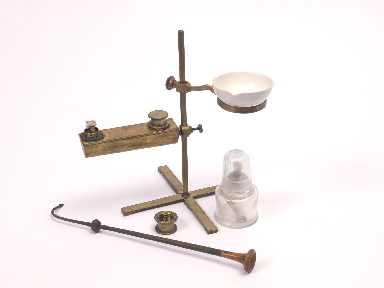
A portable Berzelius oil lamp for blowpipe analysis. The additional ring and alcohol lamp could be used to evaporate mineral water samples for analysis.
Issue 52 highlights items in the Oesper Collections related to the practice and teaching of blowpipe analysis.
Click here for all other issues from the Oesper Collections and to explore the Jensen-Thomas Apparatus Collection.
Panel Discussion in the Library — Women in Science: Conversations to Spark Success
In celebration of this year’s UC Common Read, the Clermont College Library and the Academic Support Committee proudly present a panel discussion entitled Women in Science: Conversations to Spark Success. The panel discussion will take place in the library on Thursday, October 18 from 12:30-1:30.
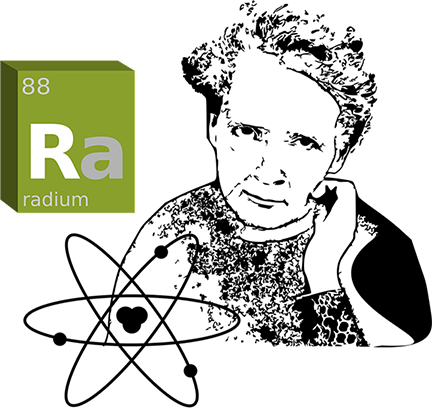
Moderated by Dr. Margaret Hanson, Associate Dean for Natural Sciences at UC’s College of Arts and Sciences, the panel will engage science and math faculty in conversation about their professional pathways. Panelists include Dr. Krista Clark, Professor of Biology, Carolyn Goodman, Assistant Professor of Mathematics, and Dr. Jill Shirokawa, Adjunct Assistant Professor of Chemistry.
For more information about the UC Common Read, Radioactive: Marie and Pierre Curie, A Tale of Love and Fallout by Lauren Redniss, please view this UC Libraries guide: https://guides.libraries.uc.edu/commonread/2019/radioactive
Katie Foran-Mulcahy
Library Director
SAE Standards and Papers (Trial Access)
Through November 10, UC has trial access to SAE Mobilus, a vast repository of engineering and technical content for the automotive, aerospace, and commercial vehicle industries. The trial  includes access to SAE standards and technical papers.
includes access to SAE standards and technical papers.
Standards cover these areas: Ground Vehicle Standards (J-Reports), Aerospace Standards, and Aerospace Material Specifications (AMS). Technical papers include thousands of reports on the latest advances and research in all areas of mobility engineering, including ground vehicle, aerospace, off-highway transport, and manufacturing technology.
Your feedback on the SAE Mobilus trial is important to our evaluation. Please send comments to: Ted.Baldwin@uc.edu (Ted Baldwin, Director of the Science and Engineering Libraries). Following the trial, we will use your feedback to determine if we pursue a campus subscription.
How UC Researchers use the Open Science Framework – Karlynn BrintzenhofeSzoc, CAHS-School of Social Work, Associate Professor
In our third installment of the series “How UC Researchers use the Open Science Framework”, we hear from
Karlynn BrintzenhofeSzoc, CAHS-School of Social Work, Associate Professor
Research Project Description or statement about your research interest:
I am working with a group of trans-disciplinary researchers who focus on the current state of care for older adults with cancer. It is well known that enrollment of older adults into cancer clinical trials is not proportional to the number of older adults who are diagnosed with and treated for cancer. Further there is little known about how older patients who participated in clinical trials respond to treatments. And we do not have a clear understanding of the many factors that affect their quality of life during treatment such as drug tolerance levels or best practices in coordinating their care.
Additionally, The American Society for Clinical Oncology (https://www.asco.org/) published a call to increase the recruitment of older adults into trials. One of the main recommendations they made is that journals develop policies that would involve a better reporting system that would encourage data to be analyzed and reported by age groups on efficacy and adverse effects. This change could improve clinical practice and likely improve the quality of life of older adults.
Our research project will take a snapshot of the literature and focus on Phase III therapeutic cancer clinical trials. We are conducting a systematic review of the literature for the time frame of July 1 2016 to June 30 2017. One of the data points we are gathering is inclusion and exclusion criteria which have an upper age cutoff. Already we see in the literature that there is an inconsistency in age reporting. Also, it is difficult to find reports where the results are stratified for older adults. And in order to set best practices, we believe researchers need to pay more attention to older adults when reporting outcomes.
This group of researchers and clinicians are a part of the Cancer and Aging Research Group (mycarg.org) which is a national advocacy group that funds and supports research to provide better coordinated care for older adults with cancer.
Why did you chose to use the OSF to organize your research/projects?
We started off using another workflow to assign readings to reviewers and it was a disaster in record keeping. We couldn’t figure out what articles had been assigned to reviewers, and if and when they had completed their assigned readings.
Then I discovered the Open Science Framework (through an email from the library) and switched to using the OSF. It was very easy to transition our workflow to this system. We could set up projects in the OSF, connect with the reviewers by inviting them to be collaborators, and share their tasks through the OSF. We created files (or components in the OSF) for each person. We loaded their reading assignments into the project and were able to track when they opened the files. So we knew what was getting done and what still needed to be addressed. It was very easy to use, especially for collaborators with virtually no training needed. There was no angst or pain with the system. It is also very easy to add and remove collaborators.
What about the OSF makes this tool a good choice for your project management (i.e. specific function of the OSF)?
I LOVE the notification features. We can track that the work is being done by the reviewers assigned. And it is easy to extract the data from a collection document in the OSF into our REDCap data management system.
Additional comment for the post that you are willing to share:
A second group of clinicians and researchers who are members of the Multinational Association of Supportive Care in Cancer (MASCC; mascc.org) are starting another project using the OSF. A CARG clinicians, who is leading this second project that is looking at shared decision making with older adults with cancer, has also decided to use OSF for the project.
The OSF has a lot of potential. I personally could use it more, but would want additional training to understand all the functionality of the OSF. And I love that the platform is accessible anywhere.
Currently our project is only accessible to collaborators, but it will be easy to open components of the project if we choose or need to share some of our findings.
October Book of the Month
by Christian Boyles
Hunger: A Memoir of (My) Body
by Roxane Gay
BF697.5.B63 G39 2017
About the book
From the New York Times bestselling author of Bad Feminist: a searingly honest memoir of food, weight, self-image, and learning how to feed your hunger while taking care of yourself. Continue reading
Erin Rinto Joins UC Libraries as Teaching and Research Librarian
Today, Erin Rinto began work at UC Libraries as the new teaching and research librarian in the Research and Teaching Services Department located in the Walter C. Langsam Library. Erin comes to UC from the University of Nevada, Las Vegas where she was the teaching and learning librarian. Over the past six years at UNLV, she worked to integrate information literacy outcomes into the general education program via sustainable, evidence-based approaches, thus providing her with extensive teaching and research experience. Erin’s primary responsibility will be working with the English Composition program, including serving on the cross-jurisdictional English Composition Committee.
Welcome to UC Libraries, Erin.

